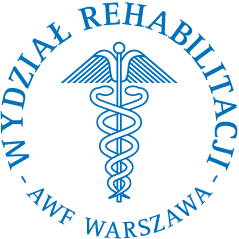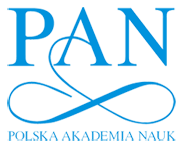


|
Current issue
Archive
Manuscripts accepted
About the journal
Editorial board
Reviewers
Abstracting and indexing
Contact
Instructions for authors
Publication charge
Ethical standards and procedures
Editorial System
Submit your Manuscript
|
3/2025
vol. 39 abstract:
Original paper
Variations in mood, sleep and physical performance during a training microcycle before a parataekwondo competition
Adv Rehab. 2025; 39(3): 27-39.
Online publish date: 2025/07/22
View
full text
Get citation
ENW EndNote
BIB JabRef, Mendeley
RIS Papers, Reference Manager, RefWorks, Zotero
AMA
APA
Chicago
Harvard
MLA
Vancouver
Introduction
Parataekwondo is a recent addition to the Paralympic program, and research on training and preparation remains limited. This study aimed to compare training load, sleep, mood, and physical performance in elite para-athletes during the 14 days prior to a national parataekwondo competition: these factors are known to have a considerable influence on athletic performance, especially during the weeks preceding competition. Material and methods Four Brazilian national team para-athletes were monitored over 14 consecutive days. Sleep was assessed daily using Actigraphy. On days 1, 5, 8, and 12, the athletes were evaluated using the Brazilian Mood Scale (BRUMS), Countermovement Jump (CMJ), Multiple Frequency Speed of Kick Test (FSKTmult), and Psychomotor Vigilance Test (PVT). After training, the Rating of Perceived Exertion (RPE) was recorded. The significance level was set at p ≤ 0.05. Results No significant changes were observed in RPE (p = 0.07), training time (p = 0.52), arbitrary units (p = 0.24), CMJ (p = 0.22), reaction time (p = 0.46), or lapses over time (p = 0.44). However, the number of kicks in the FSKTmult was significantly higher on day 12 compared to day 1 (p = 0.04). Total Sleep Time (TST) and Sleep Efficiency (SE) significantly decreased in the second week (TST: p = 0.04; SE: p = 0.05), while mood remained stable, with an iceberg profile. Conclusions Despite a reduction in sleep duration and quality, the data indicate that mood, reaction time, and general physical performance remained stable, and sport-specific performance improved. These findings highlight the importance of monitoring sleep and performance during pre-competition periods. keywords:
athletic performance, martial arts, para-athletes, sleep quality, training |
    |